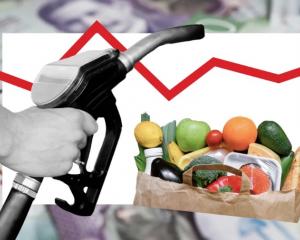Gold surged a record $US94.40 ($NZ142.3) during overnight trading on the New York Mercantile Exchange - up from $US772.35 to $US866.75 - following the United States Government's $US85 billion bail out of ailing insurance giant American International Group (AIG).
The spot price of gold had been steadily falling since hitting a record $1033.90 in mid-March.
However, this week's market volatility has driven investors, reeling from falling share and commodity prices, to find refuge in the historic "safe haven" of gold.
Not surprisingly, shares in Australian gold companies rallied, with many gaining 13% to 18% in value, while New Zealand's largest producer, East Otago-based Oceana Gold, surged 22% from an record share-price low the previous day.
ABN Amro Craigs broker Peter McIntyre said the record gold spike was "symptomatic of market conditions", reflecting the confusion and uncertainty investors were experiencing.
"Traders, speculators and hedge funds have jumped all over the place because of news-driven events," he said, referring to investment bank Lehman Brothers' bankruptcy filing on Tuesday and AIG's problems this week, which between them have exposed $US1.6 trillion in debt.
"This shows just how much the market has lost direction."
Oil, which traditionally follows gold prices, spiked 6.5% - to $US97 - for West Texas International.
But aside from such spikes, oil was expected to continue its decline as demand from cooling economies around Europe fell.
In recent months, investor groups, with trillions of US dollars of cash on hand, have "jumped in and out" of equities, commodities and even US Treasury bonds in what Mr McIntyre described as "momentum trading", where they sought a "developing safe haven".
However, when a market such as shares, gold or oil showed a downturn, investors had fled, seeking the newest developing market.
"Ultimately, they don't know which way to go," Mr McIntyre said.
The economic implications of the world's largest insurer going under prompted the US Federal Reserve's to bail out AIG on Wednesday with a two-year $US85 billion loan.
But instead of assuring investors, the bail-out has only confused the issue of how far-reaching the giant insurer's problems are and when they will end.
Mr McIntyre predicted US investor uncertainty would remain as long as the corporate bail-outs continued.
Until the companies concerned were left to fend for themselves, which would result in large bankruptcies, that uncertainty would remain, he said.
The Fed's bail-out of AIG would at least see an orderly sell-down of its wide variety of assets over the next two years, with the bank set to receive 11.5% in interest on the $US85 billion loan.












